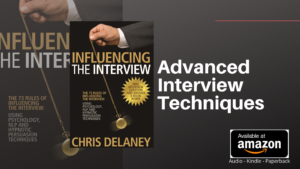Job Interview Questions for a Job at Rise in Manchester
Rise Manchester offers a tailor-made space for the FinTech community, drawing together the city’s vibrant startup culture and its rich industrial past. In staff they are looking for friendly and fun staff who know there coffee and who can improve their customers experience.
If you want a job at rise, here is some questions you will need to answer
Below you can also access 101 Interview Questions and techniques to Influence the Job Interview. Good luck with your next job interview.
Sponsored Ad
Need helping to pass your next job interview? You can book a SKYPE Interview Coaching Session and/or a Mock Interview with an interview coach by e-mailing employmentking@gmail.com
- Learn How to Structure Your Interview Answer
- Interview Confidence Session – Boost Your Interview Confidence
- Mock Interview – Practice and Prepare for Your Next Job Interview
Job Interview Questions for a Job at Rise in Manchester
Job Interview Question 1:
“Tell me about your customer service experience?”
The opening question at Rise, will be a generic interview question to gain an insight into your customer service and barista experience. Summarise your experience and have a focus on the key skills required for this position; how you welcome customers, how you promote the rise philosophy and how you go above and beyond
Ensure you mention
- customer service skills
- strong written and spoken communication skills
- the ability to solve problems
- the ability to deal tactfully with customers
- your friendliness and rapport building skills
Job Interview Question 2:
“How do you handle difficult customers?”
For situational job interview questions, answer using a real life story or example
- state the situation – why the customer was angry/difficult
- explain how you remain calm and how this calmed down the customer
- discuss what you did to support the customer while following processes and procedure
- explain the outcome of the situation ***ensure this is positive
Job Interview Question 3:
“When have you gone and beyond to help a customer?”
Rise isn’t just a coffee shop, its an experience. In an employee Rise are looking for staff members who go that extra mile. Answer this interview question by first stating your work ethic and your temperament. Second give a real life example of when you went above and beyond to help a customer. Remember at Rise the customer base isn’t just shoppers, in fact the percentage of customer are entrepreneurs who spend their day at Rise working
Job Interview Question 4:
“What questions do you need when booking a room for a customer?”
Many customers book rooms and the stage area. This task requires a level of organisation. When answering this questions explain your strategy for keeping the administration side of things on point. How do you ensure that you have the correct details; customer detailsl, booking details
Job Interview Question 5:
“Why do you want to work at Rise?”
Be honest when answering this question – Rise has to be the right fit for you, and you need to be the right fit for Rise. What made you apply for this role? Why do you like the environment? To answer this question, start with “The three reasons I want to work at Rise are…” and then give 3 real reasons.
Job Interview Question 6:
“Do you have any questions for me?”
Good interview questions to ask interviewers at the end of the job interview include questions on the company growth or expansion, questions on personal development and training and questions on company values, staff retention and company achievements.
Conclusion
Many people are afraid of job interviews. The truth is if you prepare for your job interview, by predicting the job interview questions, you can easily prepare your job interview answers. If your job interview answers highlight your unique selling point, are stated in the positive and are said in a confident manner, then you can influence the job interview to increase job offer.
Interview Preparation Resources
Other People Who Read This Article Also Read:
- How to use Sales Psychology in Job Interviews
- How to read the Interviewers Facial Micro expressions
- How to prepare for an Interview
Sponsored Ad














